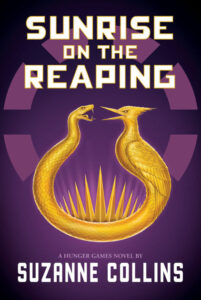Mandy Rosenberg ‘20
December 26, 2019

Each week my stomach will wrench when I look down at my phone to see a new notification. “3 hours average a day, 2% down from last week.” I make excuses for myself of how I could have spent that much time tapping, staring, and scrolling. Surely I had a reason to check my FaceBook groups five times that day, or spend an hour texting back and forth in “the GV”. Truthfully there isn’t one beyond chronic procrastination and tics.
I and society are convinced that this is grossly unreasonable. On social media, it is not difficult to find content that villainizes themselves and blames the people that use it. This leads me to assume “LIKE” would be a documentary that did just that. However, after viewing it at the Cabot Cinema, it turned out to be a film that informs people how to use social media consciously.
The voice throughout the documentary was too focused on the main professional who had been an ex-media researcher. It was as if it were his own research essay sprinkled with the perspectives of young-adult friends and peers. Although the film accomplished much with the speaker it focused on, it would have been more engaging and credible to hear from people in the same and various fields. I personally was not able to relate with the teenagers they brought to represent the youth, as their media habits were drastically different. Depicted were teens that use apps like Instagram and Snapchat religiously and hold a perspective which could have been copied and pasted out of phone addiction article. Teenagers that have a fear of missing out, whose endorphins are triggered by likes and notifications, and who admit to mindless scrolling. Since these were the type of teen depicted, it feeds into the stereotype of the adult demographic that teenagers are not in control of their media usage. This is dangerous for nonchalant movie-goers as it risks skipping the purpose of the documentary which is sharing information for healthy social media use.
As an audience member that is a member of Gen Z, I was skeptical when the speaker showed optimism for the generation with its new definition of a billionaire (a person that will positively affect the lives of a billion people). The environment at school rejects the idea that technology is having a positive influence on the oncoming classes. Therefore, I was not able to find myself agreeing with the statement. However, this kept the film on track when avoiding unwarranted criticism from the older generation.
LIKE broke all negative expectations I had of criticizing the younger generations. It focused on how technology and media are coded to toy with a person’s psychology so that they will spend more time on it. For example, Snapchat uses “streaks” which makes it so a person can see the number of days they have Snapchatted a person in a row, and in a way putting a number to their relationship. The documentary also addressed the frequent hypocrisy teenagers witness with adults where adults blame disobedient behavior on phone usage but have an unhealthy amount of screentime themselves. This part of the film was meant to be a message to the parents to be a personal good influence; as a student, I could only clasp my hands for awareness.
Unlike other accusing films about social media, the documentary closed with ways to improve bad habits, rather than leaving off in a hopeless tone. Tips included: turning your phone’s display to grayscale; not using your phone as an alarm and trying to sleep with it outside the bedroom; turning off all notifications except those for emergencies; reacting to text messages; setting a specific time slot which you will go on social media.
In the end, instead of feeling at fault for any bad social media habits I may have, I felt more self-aware and educated on the device in my pocket.



